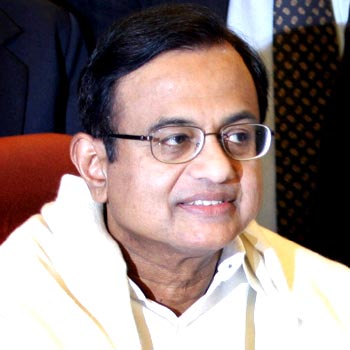India welcomes Sri Lanka's decision to stop using heavy guns
 New Delhi - India on Monday welcomed Sri Lankan government's announcement that it would stop using heavy weapons because combat operations in northern parts of the island nation had reached a conclusion, news reports said. "It means cessation of hostilities. It means to the government of India that the Sri Lankan government has put an end to the ongoing offensive," India's Home Minister Palaniappan Chidambaram was quoted as saying by the PTI news agency as saying.
New Delhi - India on Monday welcomed Sri Lankan government's announcement that it would stop using heavy weapons because combat operations in northern parts of the island nation had reached a conclusion, news reports said. "It means cessation of hostilities. It means to the government of India that the Sri Lankan government has put an end to the ongoing offensive," India's Home Minister Palaniappan Chidambaram was quoted as saying by the PTI news agency as saying.
"Sri Lanka's announcement offers solace to us. I think we all should welcome the development. More needs to be done," he said in southern Tamil Nadu state, that witnessed protests and hunger-strikes by Tamil leaders demanding an immediate ceasefire to the conflict in the neighbouring country.
India's ruling United Progressive Alliance has come under pressure from its partner Dravida Munnetra Kazagham DMK which governs Tamil Nadu to demand protection for Sri Lankan Tamils who are facing an "emergency humanitarian situation" after having fled the war zone.
Indian Foreign Secretary Shivshankar Menon and National Security Adviser MK Narayanan met with the Sri Lankan president Mahinda Rajapaksa in Colombo on Friday seeking an immediate end to the fighting.
DMK leader M Karunanidhi who had launched a hunger strike earlier Monday, broke the fast after Sri Lanka issued the statement.
"The Government of India will do more. The Prime Minister (Manmohan Singh) and the NSA are in touch with the Sri Lankan authorities. We will try to do more. But for now this means there is cessation of hostilities," he said.
Tamils in the southern Indian state, estimated to number about 60 million, have close links with Sri Lanka's Tamils and people in the state are angry over allegations that civilians have been killed by the Sri Lankan military in the offensive.
The Congress-led UPA is under pressure as it needs to ensure DMK does well and wins seats in the parliamentary elections. At the same time it risks being seen as lenient on the Tamil Tigers who are blamed for the assassination of former prime minister Rajiv Gandhi.
With 39 parliamentary seats, Tamil Nadu is considered a swing state in Indian politics - with the winner there likely to play an important role in forming India's new coalition government.
The UPA is banking on the DMK, which recorded a landslide victory in the last elections in 2004, to repeat its performance to ensure the strength of the national coalition.(dpa)